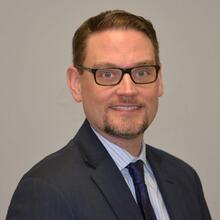Not since 1972, when Richard Nixon ran against George McGovern, have so many 18- to 30-year-old Americans voted in a presidential election as they did last November. Young adults did more than vote in November 2008. Many of them campaigned for Barack Obama, harnessing the power of the Internet to cultivate new online communities and to disseminate the message of change that he espoused and many of the young embraced. Just before delivering his acceptance speech in Chicago’s Grant Park, president-elect Obama sent bulk e-mail to his young-adult supporters, a fitting communiqué for this technologically advanced generation. “We just made history,” he wrote, not just for helping to elect the first African-American president, but also for capturing the hearts and minds of young adults and mobilizing them for a larger cause.
Eboo Patel, director of the Interfaith Youth Corps and author of Acts of Faith: The Story of an American Muslim, the Struggle for the Soul of a Generation, is another person who believes in the potential of young adults and uses new media to reach them. Patel’s organization brings together young people from many different faith traditions to do charitable work, build relationships and inspire peaceful dialogue among organized religions. But such programs can work only if the younger generation is open-minded. Modern information technologies help young people learn about the diversity of faith traditions and move away from the natural suspicion of the “other.” The I.F.Y.C. Web site, for example, hosts an online community called Bridge Builders, a forum where young adult interfaith leaders can connect and share stories of success.
Technology does not make people smarter, but it can help them to connect and rally around a cause in which they believe. We who are age 35 and older cannot simply blame younger generations if they are not interested in the things we deem important. We need to share the blame for not giving them more of what Barack Obama and Eboo Patel have managed to offer them: a cause that transcends their individual needs and that is worth working, even suffering, for. Yes, video games, YouTube and Wikipedia can provide anesthetic brain candy, distractions and easy answers; but if used for a larger cause, technologies like these become tools that can encourage intellectual growth as well as personal, social and ethical development.







